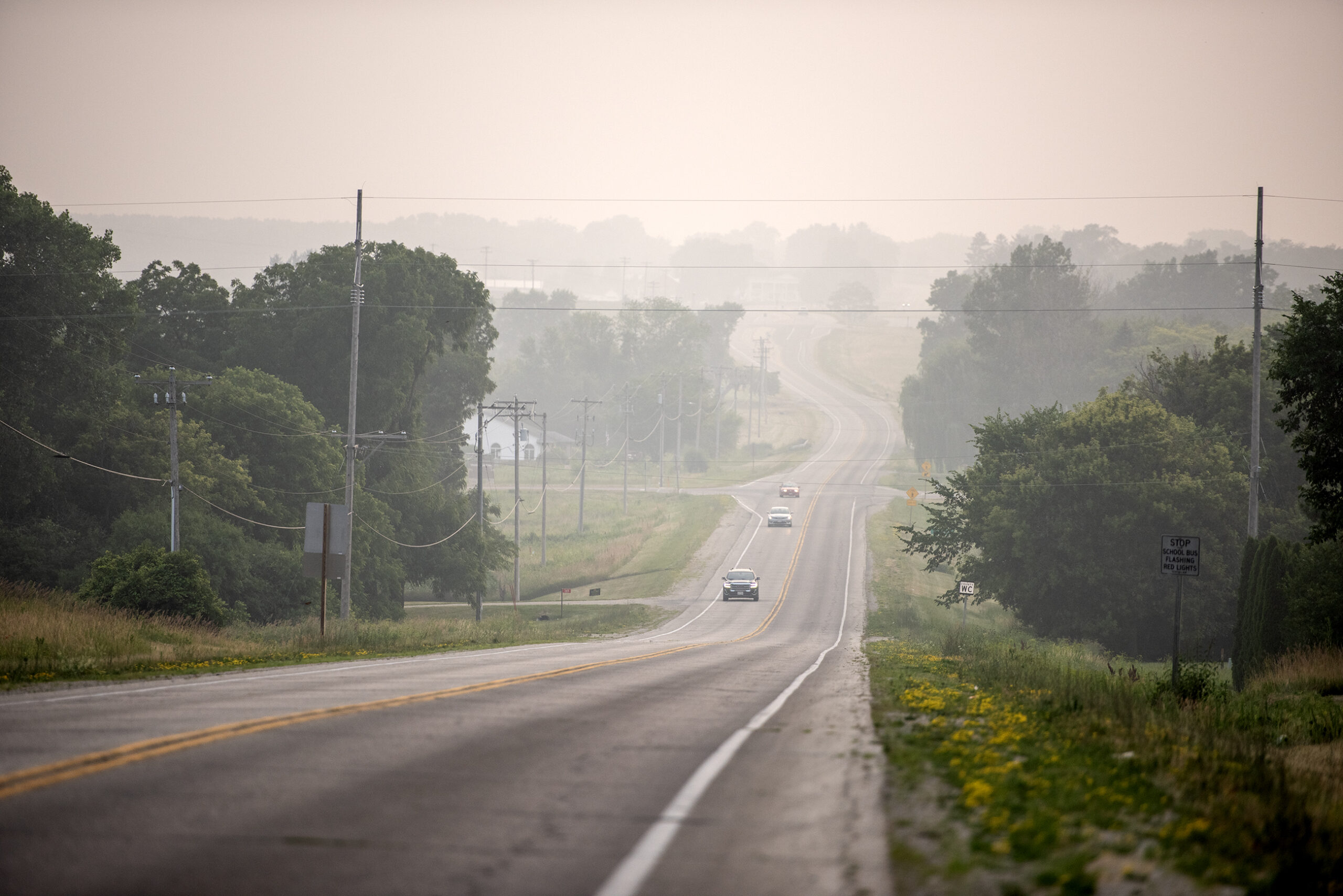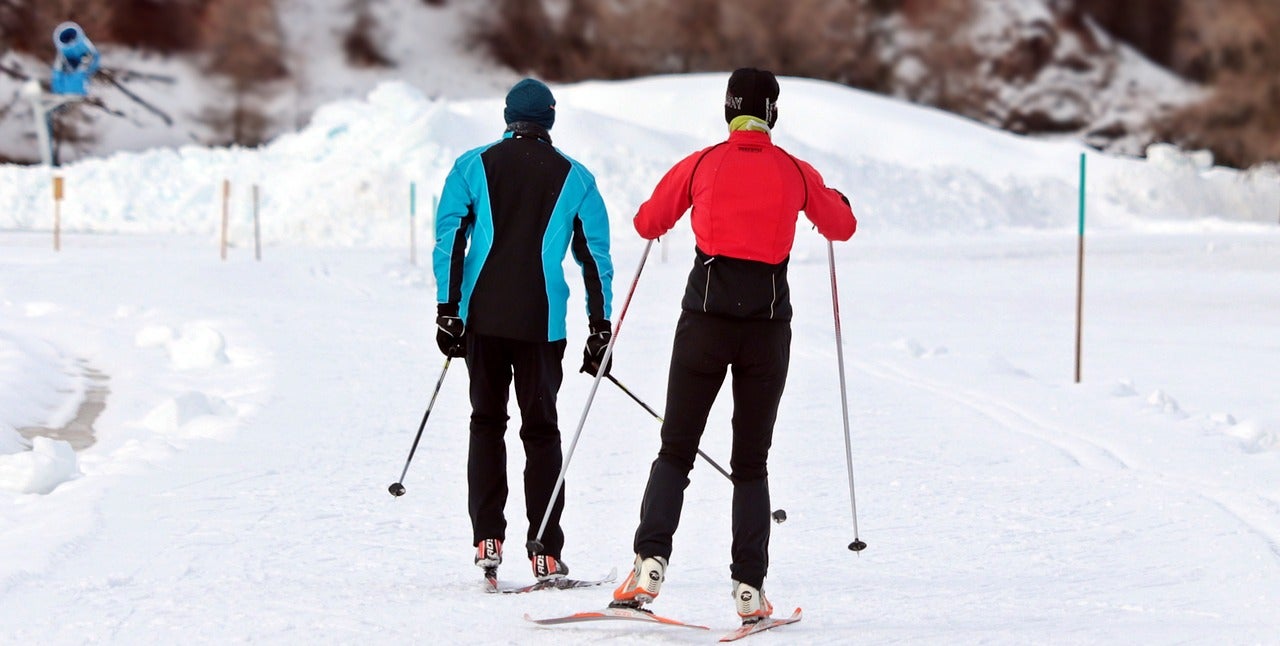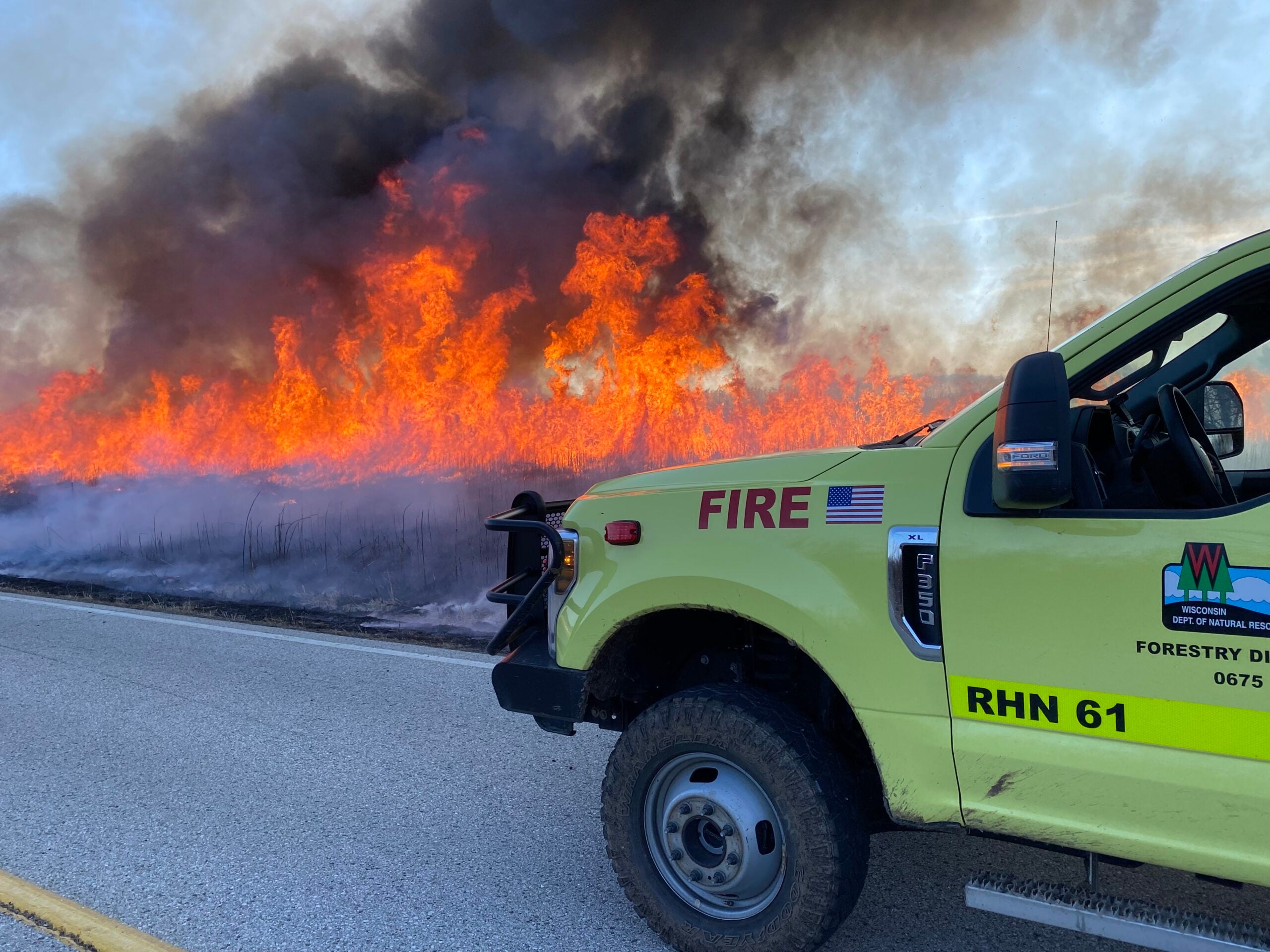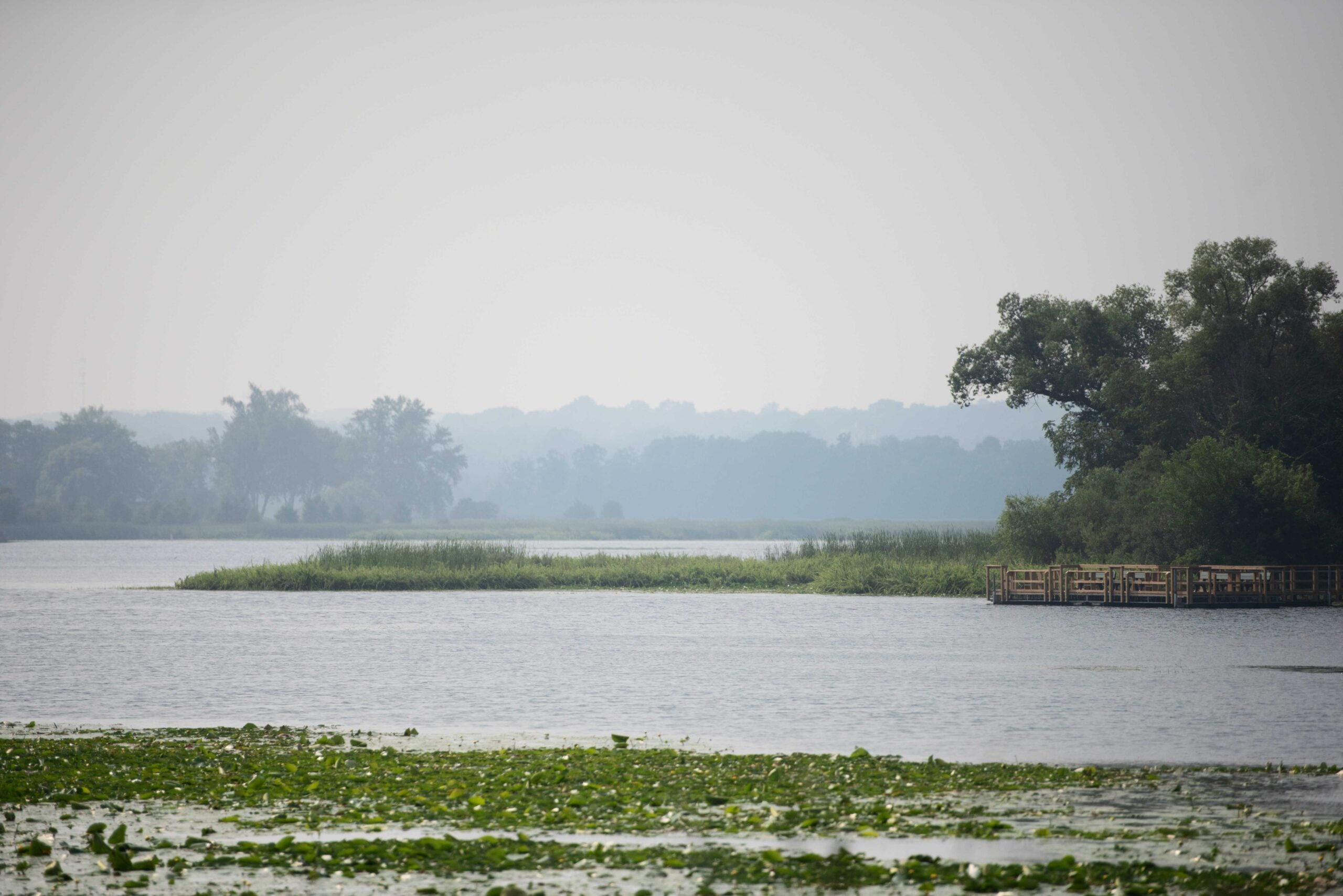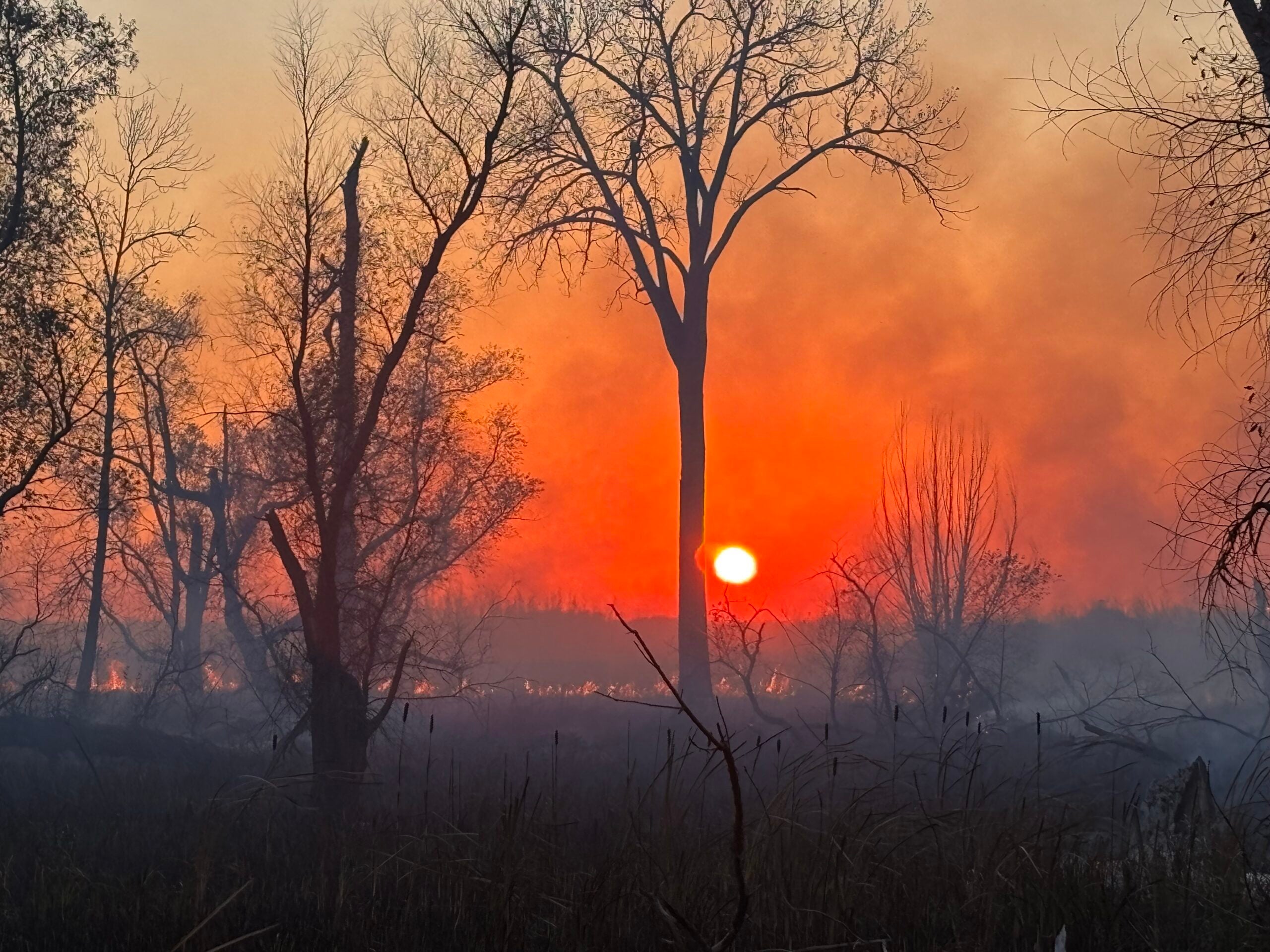Wisconsin’s season is starting early this year due to the lack of snow cover in what’s been an unseasonably warm winter.
The state Department of Natural Resources is asking residents to avoid burning because of high fire danger across the state. Last weekend alone, the agency responded to 15 wildfires burning 30 acres.
Since the start of the year, the DNR has tracked more than 50 fires that burned 160 acres. For comparison, the 10-year average over the same period is three wildfires burning two acres.
News with a little more humanity
WPR’s “Wisconsin Today” newsletter keeps you connected to the state you love without feeling overwhelmed. No paywall. No agenda. No corporate filter.
Catherine Koele, wildfire prevention specialist for the Wisconsin DNR, said the state’s typically still has snow on the ground by March and into April. She said seeing 50 fires by February is “quite unusual.”
“Ninety-eight percent of our fires are caused by people, so it’s no surprise that the majority of these fires are caused by debris burning,” Koele said. “Folks are getting outside, enjoying the beautiful weather and choosing to get out there and clean up their yards pretty early this year.”
She said dry and dead vegetation mixed with warm temperatures, gusty winds, low humidity and burning yard waste have contributed to the majority of the fires in the state over the last two months.
That’s why the DNR is asking Wisconsinites to avoid outdoor burning, including limiting campfires and bonfires. The agency also recommends discarding hot ashes into a metal container until they cool down.
Koele also said burn permits also play an important role in preventing wildfires. She said the DNR manages burn permits in about 43 counties, but local municipalities also have their own burn restrictions. The agency says it’s suspending burn permits in 25 counties.
“It’s really important to obtain those burn permits (and) follow the rules on those burn permits,” she said. “There’s a lot of great safety tips, and also just make sure that those fires are completely out before you leave.”
Last year, with drought hitting much of Wisconsin throughout the summer, there were more than 1,000 fires that burned 4,816 acres, according to DNR data. That’s the most acres burned by wildfires since 2013 when 9,109 acres burned.
“2023’s fire season was a little bit more active than a typical fire season,” said Koele. “It just it kind of lingered on into the summer months.”
El Niño weather pattern, climate change contribute to fire conditions
Benjamin Sheppard, meteorologist at the National Weather Service’s Milwaukee/Sullivan office, said the state typically doesn’t have wildfire concerns in February because there’s normally snow on the ground preventing vegetation from drying out.
But there has been very little snow this year due an El Niño weather pattern that brought warmer temperatures and less snow, Sheppard said. Climate change is also contributing to warmer temperatures.
Sheppard said rain is forecasted for Tuesday into Wednesday and temperatures are expected to drop into the teens before rising again.
“By Friday, we currently have low 50s in our forecast system. By Saturday, we have low 60s,” Sheppard said. “With that in mind, this pattern looks to continue and the early start (to) fire weather season has begun.”
READ MORE: Wisconsin on track to have warmest winter ever recorded
Sheppard also said counties bordering Lake Michigan could avoid some fire conditions from cool wind coming off the lake, but the southwest portion of the state faces an elevated fire risk.
He said the wind hitting southwestern Wisconsin is warm and dry as it comes from Illinois and the central United States.
As climate change continues, Sheppard said he’s concerned the state could see more unseasonably warm winters and more early fire seasons.
“I would not be surprised if as a result of the changing climate that we were to have more years like this, where winters are milder,” he said. “Not only is climate change a contributing factor to the increase in these anomalous events that we’re seeing, but also something that’s going to continue in the future.”
Wisconsin Public Radio, © Copyright 2025, Board of Regents of the University of Wisconsin System and Wisconsin Educational Communications Board.

